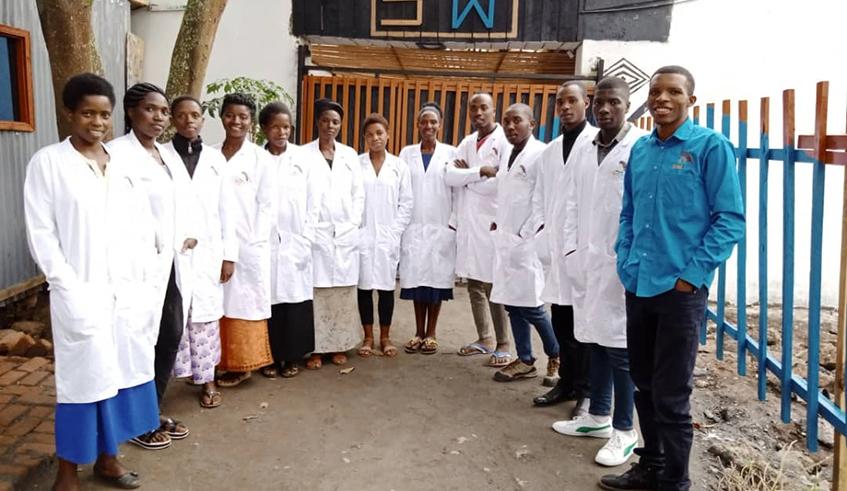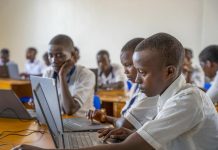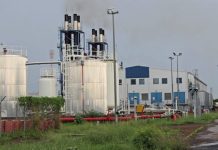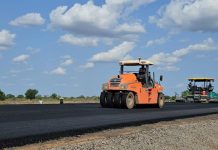Africa-Press – South-Sudan. Many people mostly know avocado as a food addition, like a salad, established to contain many nutrients that are good for our health. But to Alexandre Nshimiyimana, the fruit is more than just a snack, and uses its contents to make skincare products, like moisturisers and soap.
With his academic background in chemistry, he took a soap-making course in 2015, after which he started a business, with a starting capital of about Rwf 65,000. As a new entrepreneur, finding the market and winning customers’ trust didn’t come easy.
Sanit Wing, which he founded, located in Burera District, Northern Province, is a processing and manufacturing industrial company that produces a variety of oils, cosmetics and soaps from raw materials, mostly avocados.
The soap made from avocado oil, among other things.
He started with laundry soap bars and liquid detergents. However, the company, he says, chose to take a step back from making liquid soap, and started processing avocado oil to make cosmetics because ‘the market of liquid soap was already flooded with brands’.
Also, he says, the company’s decision to start processing avocado for skincare use came from the government’s ban of the importation of palm oil— the most widely consumed vegetable oil on the planet, found in many supermarkets—citing the use of poor transportation and packing materials.
“This put pressure on the local market, and prices of palm oil skyrocketed. I then thought of ways to make vegetable oil locally to replace the palm oil.
Alexandre Nshimiyimana
The only solution was to make best use of the only oily plant that exists on Rwandan soil in all regions of the country. Rwanda produces avocado in abundance, roughly 141,000 metric tons every year. We became the official forerunners of avocado processing in Rwanda,” Nshimiyimana says.
The demand
When it comes to manufacturing cleansers, he says they focus on ‘cold process soap’ which is made by combining oils and sodium hydroxide lye (a strong alkaline liquor rich in potassium carbonate leached from wood ashes).
After producing the avocado oil, it is then blended with olive oil bought from local distributors. The blend of oils, he says, mixed with the lye, makes soft bathing soap, with great natural properties that boast of impressive skin-boosting benefits.
“The demand for avocado oil is more than we can deliver for now. We have clients in Nigeria, Namibia, Egypt, and USA who want over 20,000 litres of avocado oil every month. The challenge now, based on my projections, is that we will only be able to produce to that capacity by 2023,” he says.
Nshimiyimana points out that for soaps, the export market is not huge, but the distribution of oil to other beauty and cosmetic enterprises is unlimited.
“The challenge is the capacity to meet orders due to limited finances to invest in high-end oil processing equipment. The extent of soap made depends on how much oil we can produce per day,” he says.
“As a growing company, we also face challenges with branding and marketing, a big section does not know what we do. It is more than just making soap. We are developing the entire avocado value chain to new heights, solving issues many communities face today.
“The other challenge is finding skilled and highly innovative local labourers, and this limits our potential to become a regional giant,” he says. However, he is also trying to change this, by offering free tutorials for anyone who wishes to learn and start the business via his YouTube channel, Hanga Creative Show.
Goals
Nshimiyimana plans to invest in better equipment to meet the global demand by 2023, while utilising platforms like the African Continental Free Trade Area (established to create a single continent-wide market for goods and services, and to promote the movement of capital and natural persons) to construct branches in Tanzania, Zimbabwe, and Cameroon.
He also aspires to elevate the avocado value chain in Rwanda, and create a stable market for the fruit involving block chain technologies to make avocado farming a smart business. Today, Nshimiyimana has over 16 permanent employees, and the possibility of creating at least 6000 job opportunities by 2025 drives him.
In 2017, Nshimiyimana was named ‘Entrepreneur of the Year’ by Rwanda Development Board (RDB), and recently, he won the GoGettaz Agripreneur Prize, a continental competition that aims to find Africa’s brightest young agri-food entrepreneurs, with over 3400 applicants across the continent. The competition awards one male and one female.
The soap’s name is derived from the name of the fruit—AVO—however, with its natural skin boosting properties, they are thinking of rebranding it as ‘Dr AVO’. A bar of bathing soap ranges from Rwf 800 to Rwf 1,000 depending on the region or place. If ordered via the website, or bought from any shop in Burera, it goes for Rwf 800. For more information, you can reach Nshimiyimana on 0783870118






